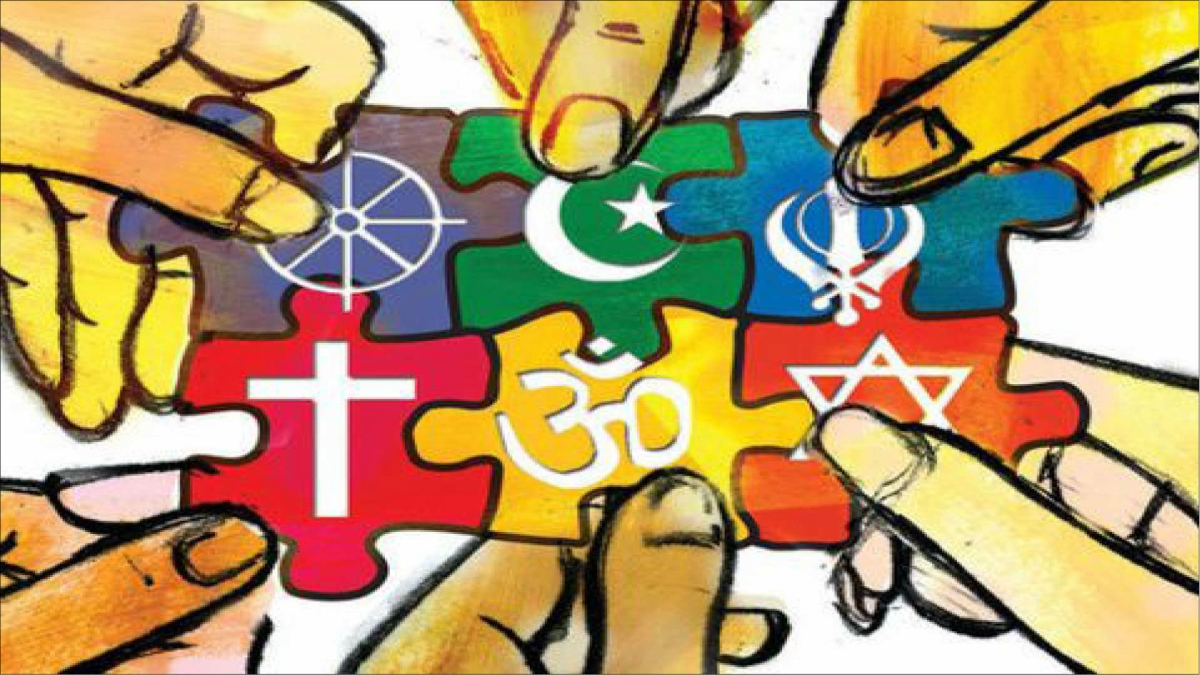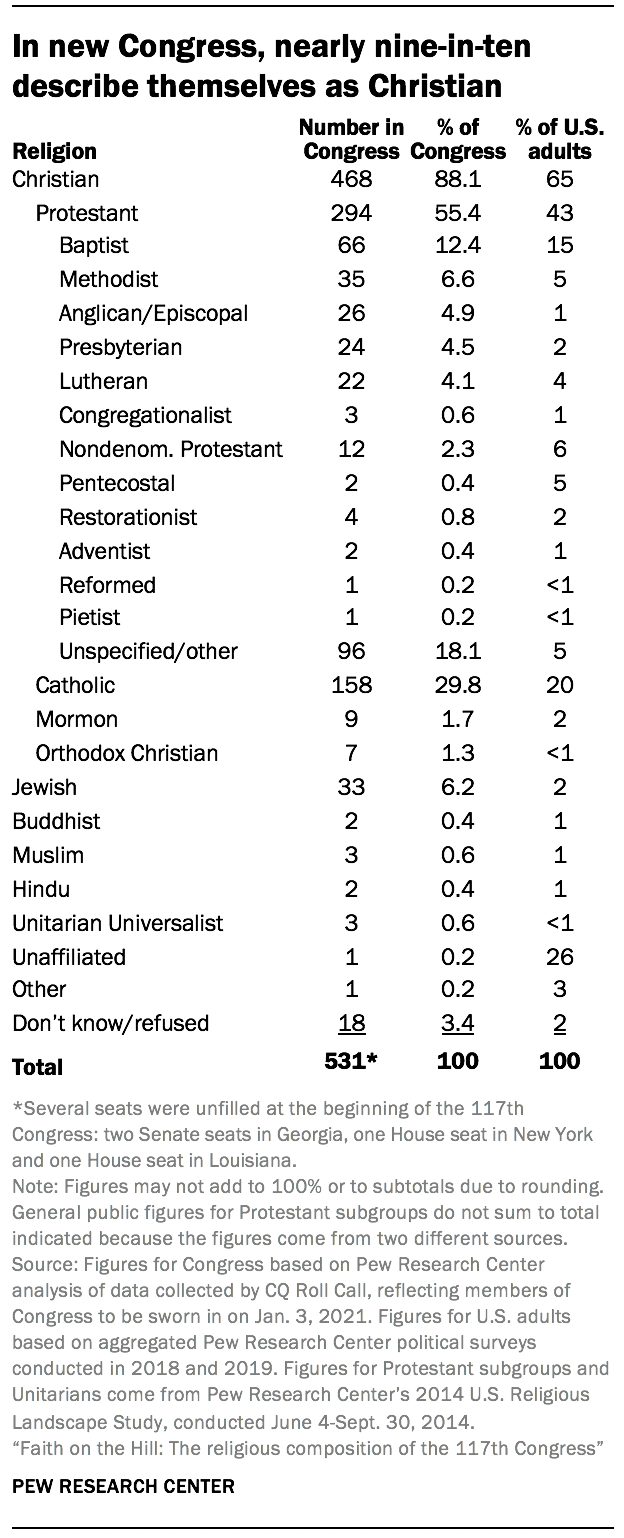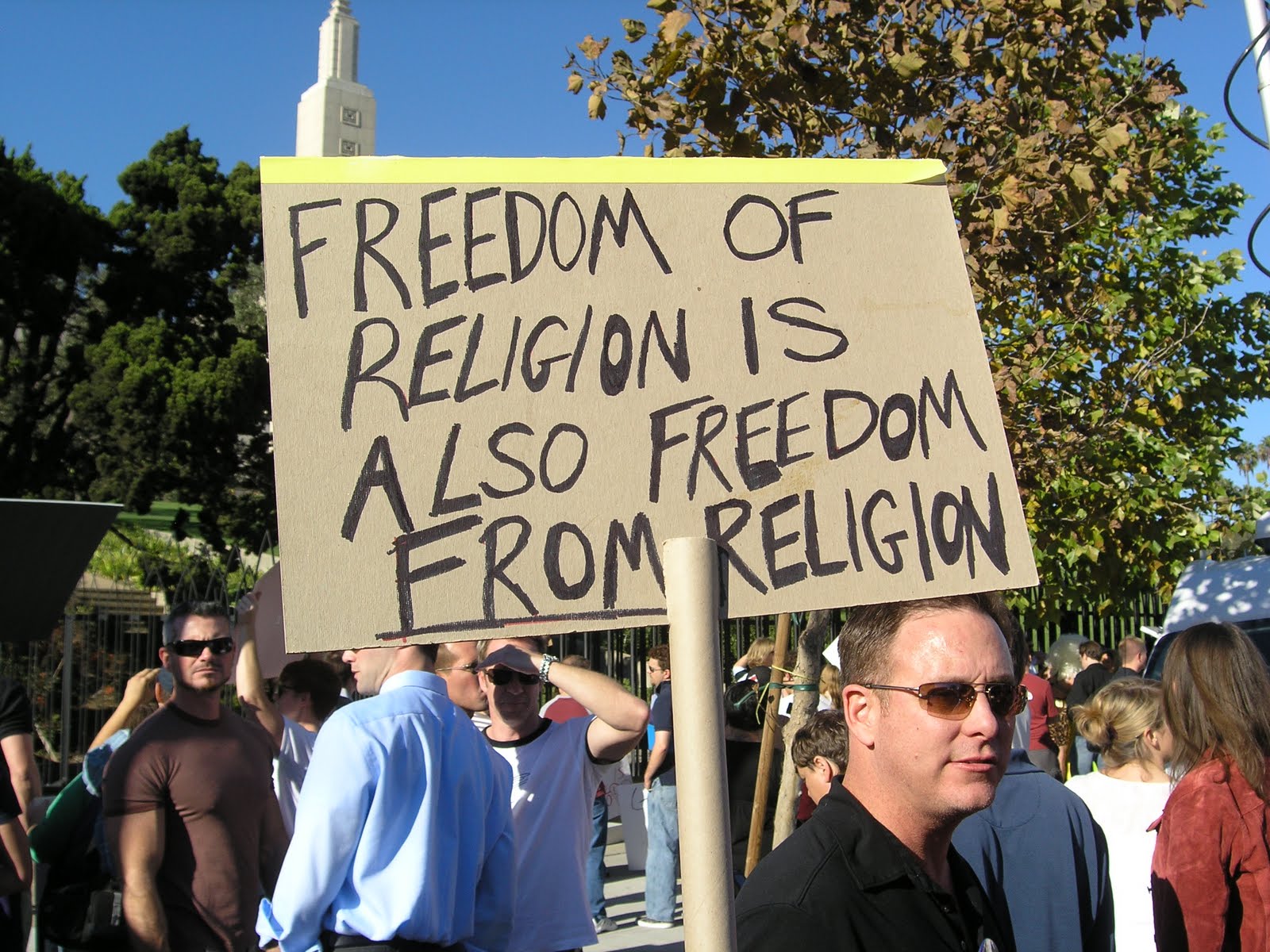
Out of all of the freedoms awarded to us by the government, freedom of religion is one of the most highly debated. Not because people are debating whether or not we should have freedom of religion, but more so because there are many opposing ideas of what this freedom should look like. Freedom of religion is often summed up by the phrase “separation of church and state”, but that doesn’t actually provide much detail as to how they should be separated or to what degree the separation should occur. This lack of detail has begun to divide Americans even further as they question how much of an impact should these two institutions (the church and the government) have on each other.
The clear answer is no effect at all. Religion shouldn’t interact with politics because they are two very different things. Religious beliefs are ideals and values that you choose to live by whereas political beliefs are overarching ideas of how you think an entire area should be run. There can be overlap between the two, but one should never dictate the other. For this reason, religion is another example of a current political issue that truly has no business being political at all. What one person chooses to believe or not to believe is completely up to them, and that is the reason that we have freedom of religion written into the First Amendment. This clause keeps the government away from the church by ensuring that Americans can practice whatever religion they follow in whatever way they follow it (this is the Free Exercise Clause) and it keeps religious institutions out of the government by deeming anything that promotes a national religion unconstitutional (this is the Establishment Clause). Even though these clauses were included in the Bill of Rights solely to protect freedom of religion, in modern America freedom of religion is quite the divisive topic.

Once again the fact that a non-political topic has become a political issue can be chalked up to partisan politics. Partisan politics is the driving force behind a majority of the issues dividing the nation, and religion is no exception to that. So, naturally, the two major political parties have wildly different views on the topic which then trickle down so that (in general) Republicans all believe one thing and Democrats all believe another. This is very harmful for all issues because there comes a certain point where people don’t have a reason for why they believe a certain thing beyond the fact that they’re affiliated with the party that believes it. However, this behavior is especially damaging when it comes to religion because there are a lot of groups who are potentially under attack with some of the partisan views that aren’t represented in Congress. Specifically, approximately 88% of the 117th Congress was Christian while only 65% of American adults are Christian. This lack of representation allows for a lot more partisan politics because there isn’t enough variety in the voices being heard. The result of this is that more extremist ideology surfaces and is able to run rampant, which just furthers the damage done by partisan politics.
It’s already been established that partisan politics have been playing a large part in making religion political, but what exactly is happening? Like I mentioned before, religion has become a political issue because people are debating what freedom of religion should look like. This is where partisan politics comes in. Before I go into the views on both sides, I would like to remind the readers that these are generalized statements and I am in no way, shape, or form implying that this is something that every single Democrat or Republican believes. Now, back to your regularly scheduled programming.

On the right side of the political spectrum, there has been the emergence of a “religious right” that understands freedom of religion to mean that they can make laws based on their religion because they are free to practice however they choose. This has resulted in many conservative lawmakers to begin proposing bills that a basically just writing different “Christian values” into law. This is in direct opposition to the understanding that Democrats have of freedom of religion. On the left side of the political spectrum, freedom of religion is viewed simply as keeping religion and politics completely separate from each other. Clearly, there is some clashing between the parties’ beliefs. I think a simplified way of putting the differences in these views is that the Republican party treats freedom of religion as something put in place to protect the church from the government overstepping while the Democratic party believes basically the exact opposite. With these two very opposing views from each party, partisan politics has once again managed to further divide the nation. Even if people don’t have strong opinions about freedom of religion, they can end up at either extreme of the spectrum simply because they affiliate themselves with either the Republican or Democratic Party.
I could not agree more – religion should stay separate from politics. I find it’s generally a good practice not to force your beliefs on others, and this includes religious beliefs. However, the rise of the religious right is alarming to me, not because of their outspoken advancement of their faith, but more because of the measures they take to implement their beliefs into legislation. I disagree with this approach completely, but this also can become a slippery slope, yet another concern about integration religion and politics.